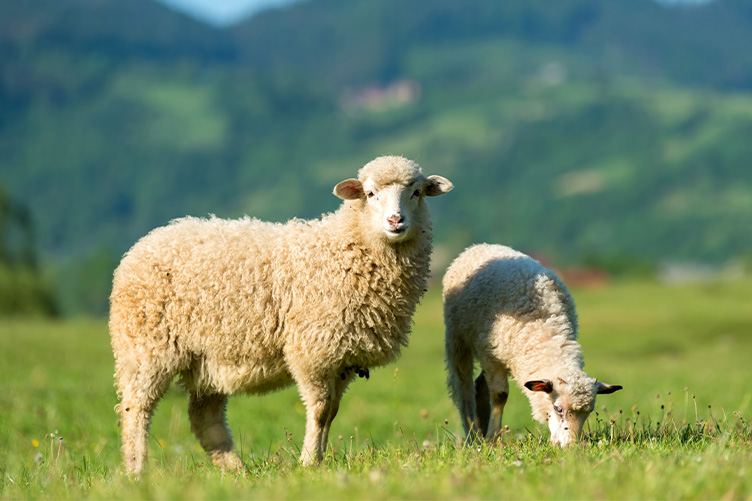
Sheep everywhere are known for peacefully grazing in meadows and supplying us with their unique and versatile wool. Each breed has its own charm and purpose, capturing hearts and fueling industries around the world for centuries. These 11 popular sheep breeds are well worth getting to know!
- Merino: The undisputed king of wool production, the Merino sheep boasts a fleece so fine and soft that it feels like a cloud draped on its back. Originating in Spain, these graceful sheep have been bred for centuries to produce the finest merino wool, prized for its warmth, breathability, and luxurious texture. They now live across the world and are especially popular in Australia and New Zealand. Learn more about the benefits of merino wool and consider adding a piece to your wardrobe.
Shop our selection of Merino Wool Products.
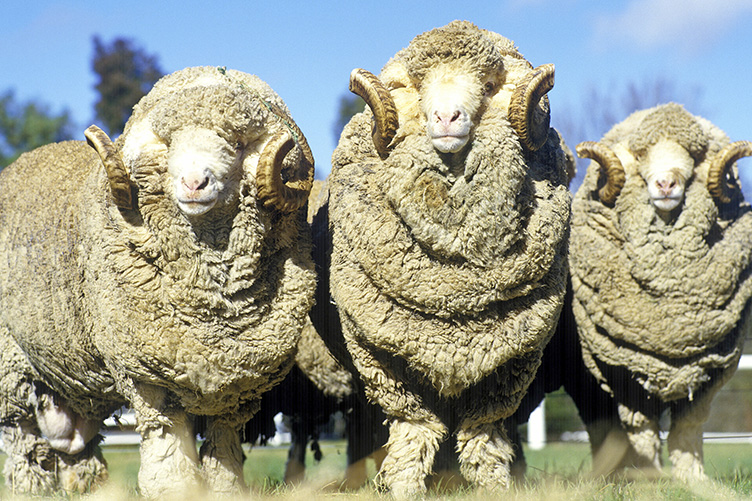
- Suffolk: Hailing from England, the Suffolk is a large, muscular breed renowned for its high-quality meat (they can now be found worldwide). Their black faces and short, white fleece make them instantly recognizable. Suffolks are known for their hardiness, adaptability, and prolificacy, making them a popular choice for commercial meat production.
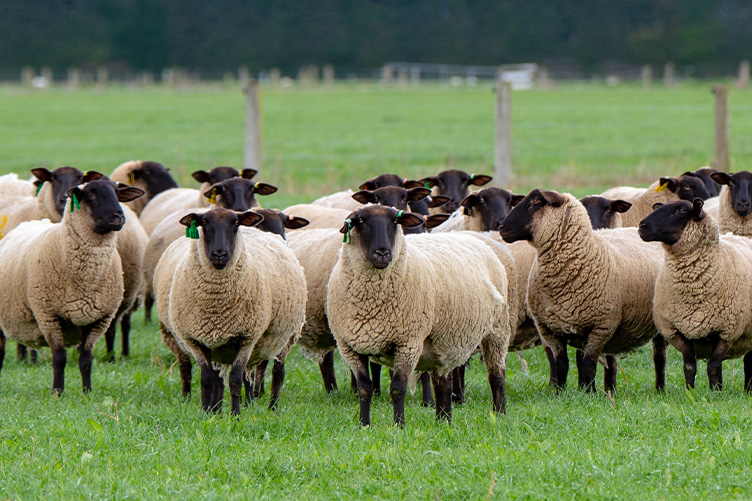
- Hampshire: Another British breed, the Hampshire, is a dual-purpose sheep valued for both its meat and wool. Their distinctive black faces, white fleeces, and long, sturdy legs make them stand out in a crowd. Hampshires are known for their docility, good mothering instincts, and ability to thrive in diverse climates, including the United States.
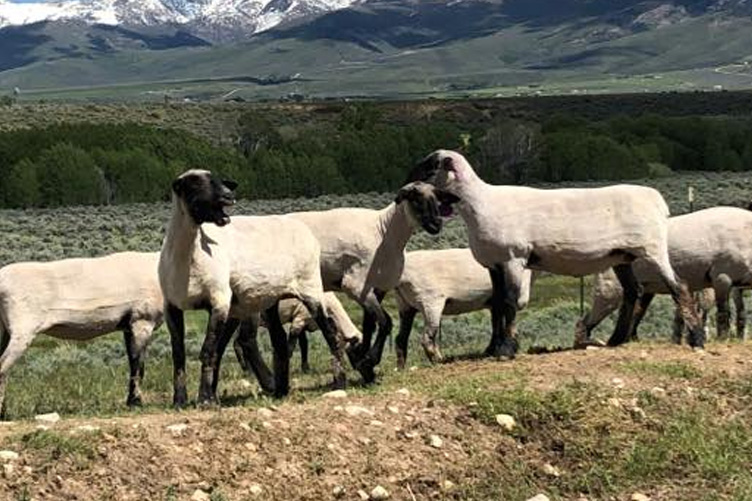
- Columbia: Born from a cross between Rambouillet and Lincoln sheep, the Columbia is an American success story. This dual-purpose breed boasts a long, white fleece ideal for wool production while also producing high-quality meat. Columbias are known for their adaptability, resistance to disease, and ease of lambing, making them a favorite among American farmers.
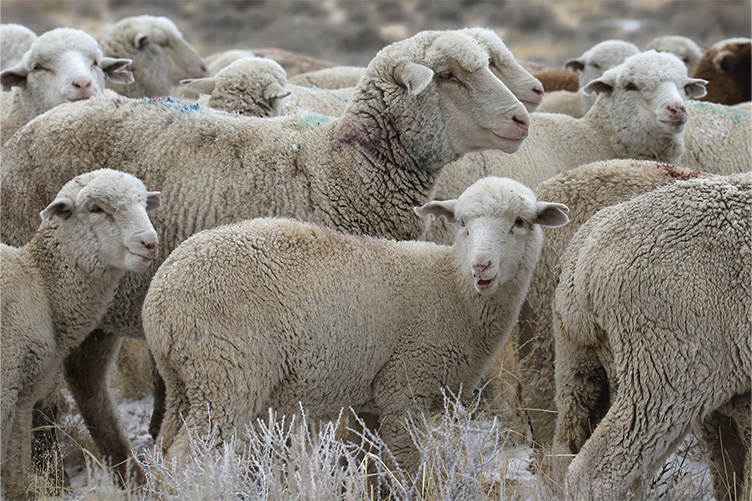
- Horned Dorset: This gentle breed, hailing from the English county of Dorset, is a true charmer. Horned Dorsets are known for their prolificacy, producing multiple lambs per year, and their ability to breed out of season, making them ideal for year-round lamb production.
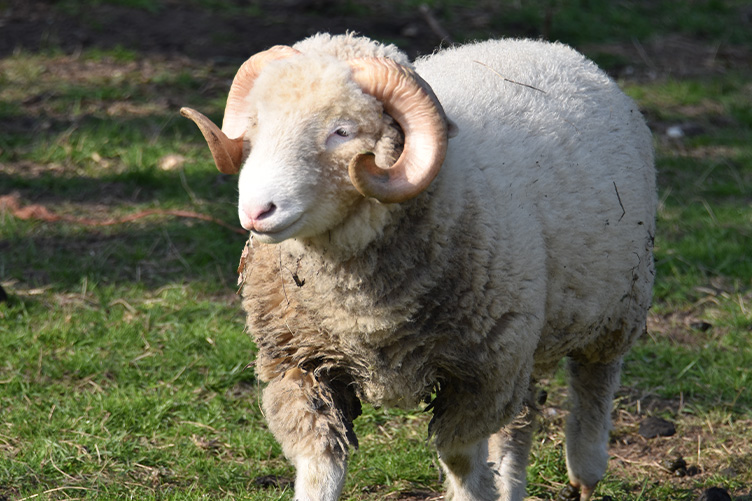
- Shetland: Don’t let their small size fool you, Shetland sheep are a force of nature. These hardy sheep, originating from the Shetland Islands of Scotland, are known for their thick, double fleeces that come in a kaleidoscope of colors. Shetland wool is prized for its softness, warmth, and versatility, making it ideal for knitting and weaving.
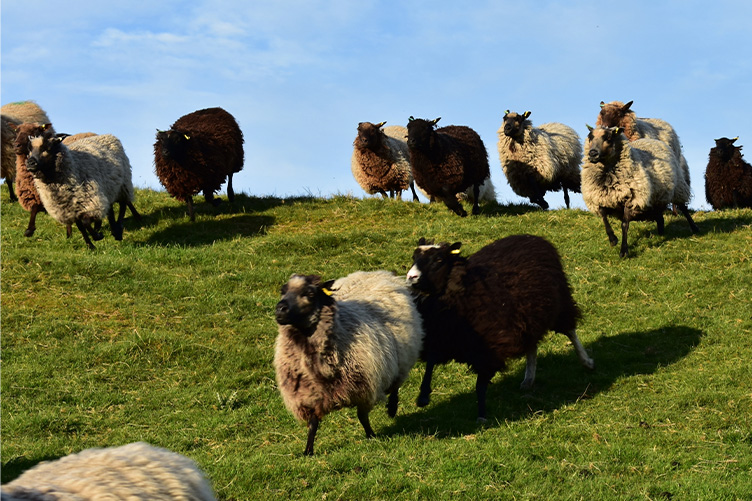
- Icelandic Sheep: These longhaired beauties from Iceland are more than just sheep, they’re living cultural icons. Their thick, double fleeces, known as “lopi,” provide warmth and insulation in the harsh Icelandic climate. Icelandic sheep are also known for their unique markings, often sporting a combination of black, white, and brown wool. They are raised throughout the world now.
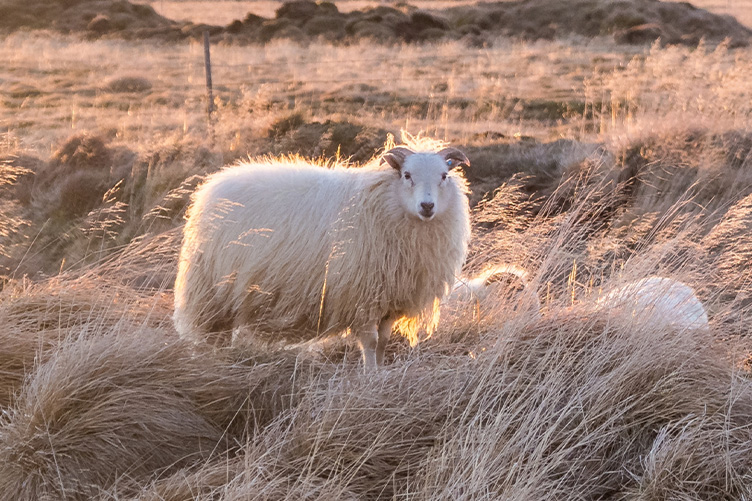
- Jacob: These spotted sheep, with their patchwork coats of black and white, are as eye-catching as they are unique. Originating in England, Jacob sheep are a multi-purpose breed, valued for their wool, meat, and dairy. Their gentle nature and easy lambing make them popular choices for small farms and homesteaders.
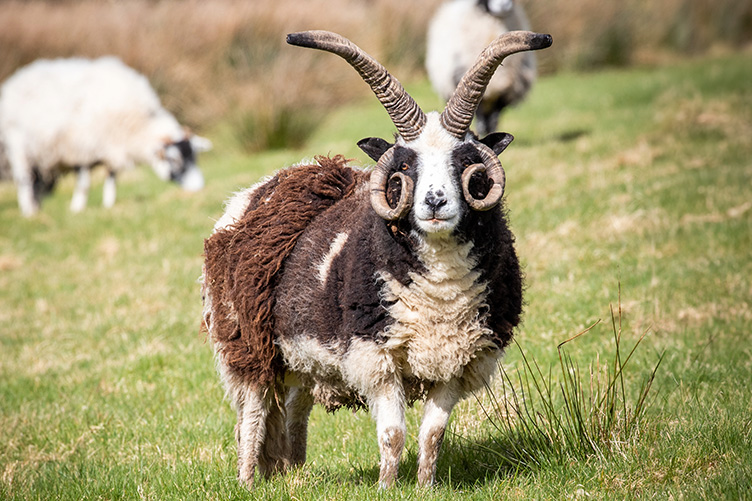
- Katahdin: This hair sheep breed, developed in Maine, USA, is a testament to human ingenuity. Katahdins naturally shed their fleeces, eliminating the need for shearing, a major advantage in terms of labor and animal welfare. They are also known for their hardiness, resistance to parasites, and excellent mothering instincts.
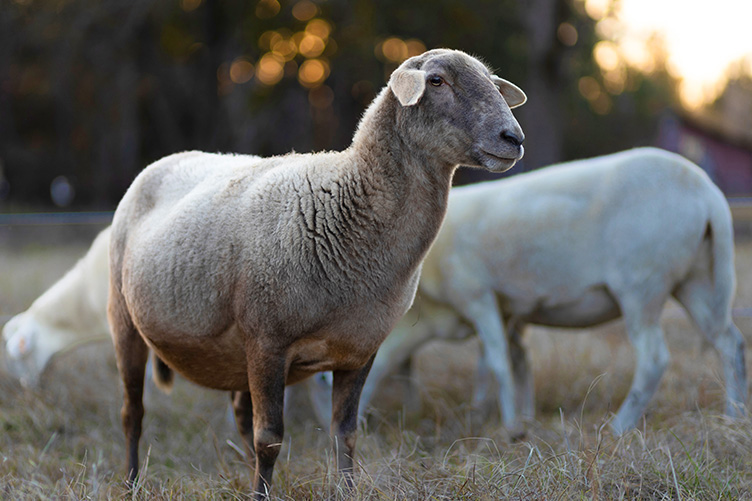
- East Friesian: These milk sheep, hailing from Germany, are the undisputed champions of milk production. East Friesians can produce up to three times more milk than other sheep breeds, making them ideal for cheesemaking and other dairy products. Their gentle nature and prolificacy make them valuable additions to any dairy flock.
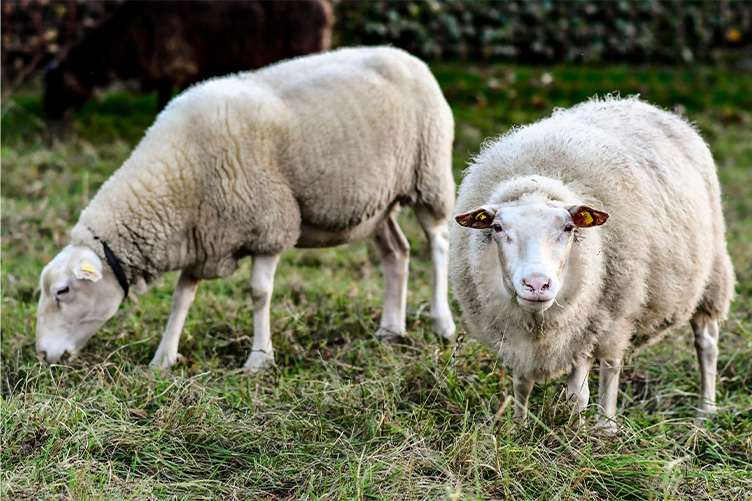
- Black-Nosed Valais: Sporting a tuxedo-like face and a cloud of fluffy wool, the Black-Nosed Valais is a sheep straight out of a fairytale. Hailing from the Swiss Alps, this breed is more than just adorable; it is hardy too, grazing on steep slopes. Their charming black patches and friendly nature make them popular for both meat and wool, though their cuteness often wins hearts first. So, if you’re looking for a sheep with personality and a dash of Alpine charm, look no further than the Black-Nosed Valais!
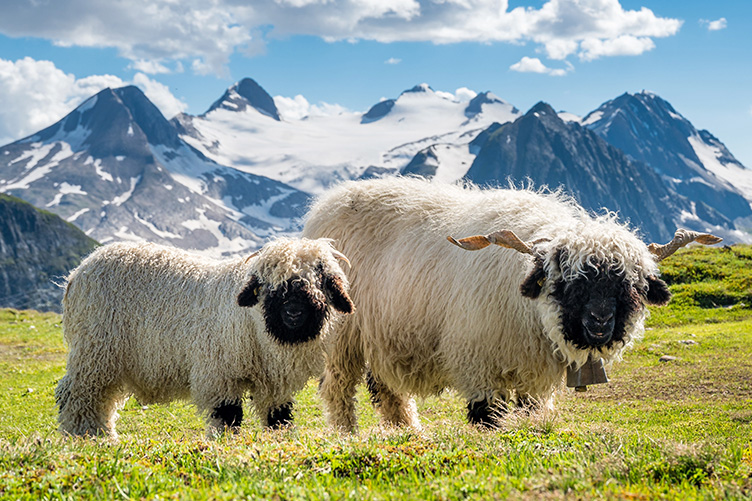
11 Fun Facts About Sheep
Let’s keep learning about these popular farm animals! Did you know…
- Square eyes, round vision: Sheep have rectangular pupils, giving them a nearly 360-degree field of view! This helps them keep an eye out for predators while munching on grass.
- Face recognition champions: Forget counting sheep, they’re counting faces! Sheep can remember up to 50 individual sheep faces, and even recognize human faces they’ve seen before.
- Wooly wonders: Unlike wild sheep, domesticated breeds need regular haircuts! Merino sheep, for example, can grow fleece so long it weighs more than them!
- Super sniffers: Don’t underestimate a sheep’s nose! They have scent glands around their eyes and hooves, used to communicate with each other and navigate their environment.
- BFFs in the flock: Sheep form strong bonds with each other, even grieving the loss of friends. They can even detect anxiety in other sheep just by looking at their faces!
- Mathematical minds: Contrary to the stereotype, sheep are actually quite clever. Studies have shown they can navigate complex mazes and even learn basic math skills!
- Talking in baas: Sheep have a complex language of baas, grunts, and headshakes to communicate with each other. They can even express emotions like fear, happiness, and hunger through their baas!
- Leaping lambs: Newborn lambs are impressive athletes! They can stand and walk within minutes of birth and even jump over small obstacles.
- Sleepy sheep: Although they seem relaxed, sheep actually need less sleep than humans! They get by on just 4-5 hours a night, with short naps throughout the day.
- Ancient companions: Sheep were one of the first animals domesticated by humans, over 10,000 years ago! They provided wool, meat, and milk, and still play an important role in agriculture today.
- Colorful coats: While white wool is most common, sheep come in a variety of colors, including black, brown, and even spotted! Some breeds even have naturally colored wool, eliminating the need for dyes.
This is just a glimpse into the fascinating world of sheep breeds. Each breed has its own unique story and history, contributing to the rich tapestry of agriculture and fiber arts. The next time you see a sheep grazing peacefully in a meadow, take a moment to appreciate these remarkable creatures, the wooly wonders who have enriched our lives for centuries.
At The Cheshire Horse, we carry everything that you need to care for your sheep. Shop our extensive selection of sheep products.
What is your favorite breed of sheep? Tell us about them in the comments below!
